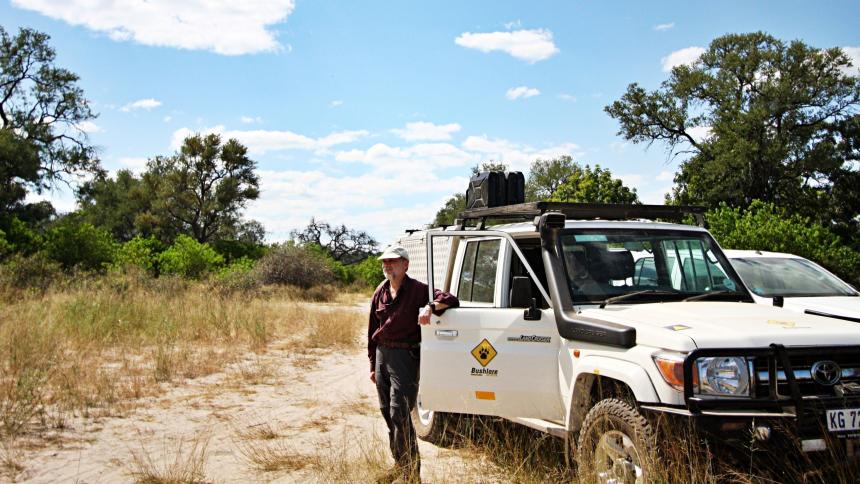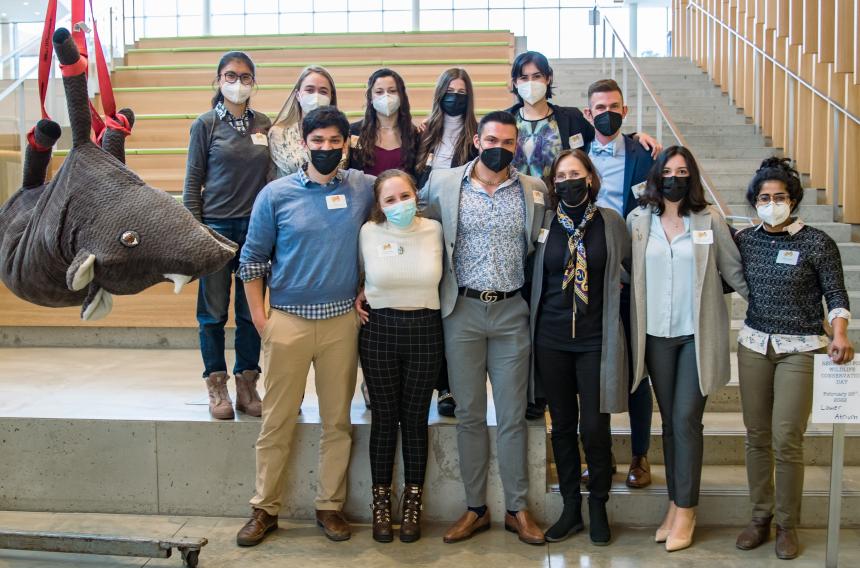In the News

December 12, 2023
Renowned wildlife veterinarian Dr. Markus Hofmeyr visited Cornell University to share his perspectives on sustainable conservation, focusing on challenges and successes around wildlife reintroduction and rewilding.

For Your Information
October 06, 2023
This recent study shows that despite a population increase of greater one-horned rhinos in Nepal's Chitwan National Park, genetic diversity has declined.

January 18, 2023
From Ithaca to the plains of southern Africa, the Cornell Wildlife Health Center is working to heal the natural world. Launched in 2020, the center was formed to unite Cornell’s leading wildlife health professionals under a common mission: to repair the fractured relationship between people and nature.

Video
November 04, 2022
Cornell Wildlife Health Center director Dr. Steve Osofsky takes you on a brief tour of our One Health work around the world.
News
November 03, 2022
If Dr. Benjamin Jakobek decides to write a book, I will be first in line to buy it. As he tells me about some of the projects he’s been a part of, including capturing and collaring muskox in Nunavik and working to transport caribou to a protected environment, he is a reminder to all of us aspiring veterinarians that we will one day have the capability and arguably, the responsibility, to help protect wild animals and places around the world....

March 21, 2022
Cornell’s Zoo and Wildlife Society hosted its first Wildlife Conservation Day Feb. 26, a one-day symposium devoted to education and training for students with an interest in non-domestic species.

Blog
February 01, 2022
Cornell veterinary student Colleen Sorge, DVM '24, speaks with Cornell Wildlife Veterinarian Dr. Robin Radcliffe about his career in wildlife health and conservation.

December 14, 2021
Cornell's Dr. Robin Radcliffe and his research team won a 2021 Ig Nobel for their work in Namibia on methods of relocating black rhinos—which is often vital to protect the critically endangered species from poachers.

November 22, 2021
The Wildlife Disease Association highlights Cornell wildlife veterinarian Dr. Robin Radcliffe and his team, who were awarded an Ig Nobel prize for their rhino health research.

Video
September 22, 2021
Watch the announcement of this year's Ig Nobel Transportation Prize, awarded to a Cornell-led team for their research on whether it's safer for rhinos to be transported upside-down or on their side.
